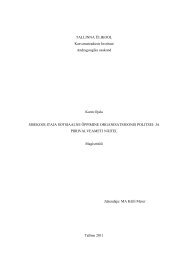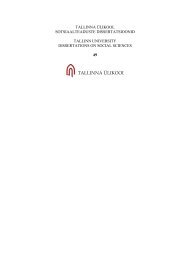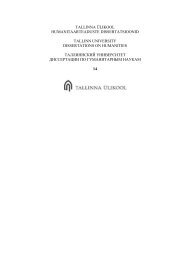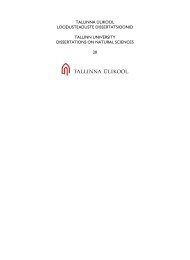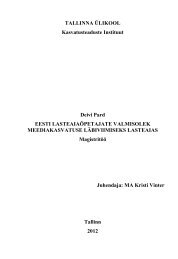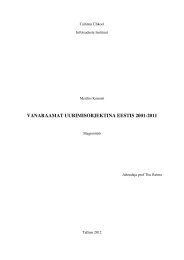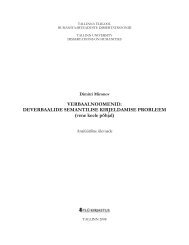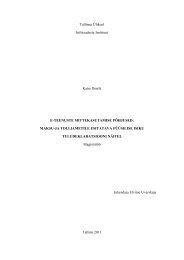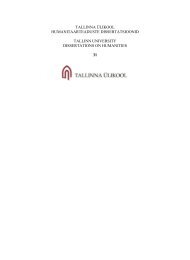Download (1157Kb) - E-Ait
Download (1157Kb) - E-Ait
Download (1157Kb) - E-Ait
You also want an ePaper? Increase the reach of your titles
YUMPU automatically turns print PDFs into web optimized ePapers that Google loves.
4.2.1. The effectiveness of the incentives used.<br />
Rewards systems are complex and difficult to design. Findings suggest that despite the<br />
presence of the incentives mentioned above, knowledge sharing is still exercised at a minimal<br />
level in Tanzania public university libraries with only 14% (3 out of 21) suggesting informal<br />
sharing. Seventeen out of 21 (81%) suggested meetings while six (29%) for seminars and<br />
one (5%) through head of departments, see 4.1.2 for the discussion about pros and cons<br />
posed by the absence of informal knowledge sharing. Studies by Kimiz suggests that in<br />
practice, informal incentives in form of recognition by management, and visibility within the<br />
organisation can often be more powerful incentives than the formal incentive systems. See<br />
more about informal incentives in (Kimiz, 2005)<br />
As the findings suggest, the availability of rewards has not influenced much the success of<br />
knowledge sharing in Tanzania public university libraries as statistics suggest sharing<br />
exercised below average for all strategies except for meeting scoring 57%. Even though some<br />
gaps were identified as discussed in previous sections which could suggest the ineffectiveness<br />
of knowledge sharing, it is indeed vital to rethink how we design our rewarding systems. No<br />
consistency was found in any type of rewarding system that allows us to conclude that a<br />
particular university is using a particular kind of incentive. The only consistency from a<br />
46





